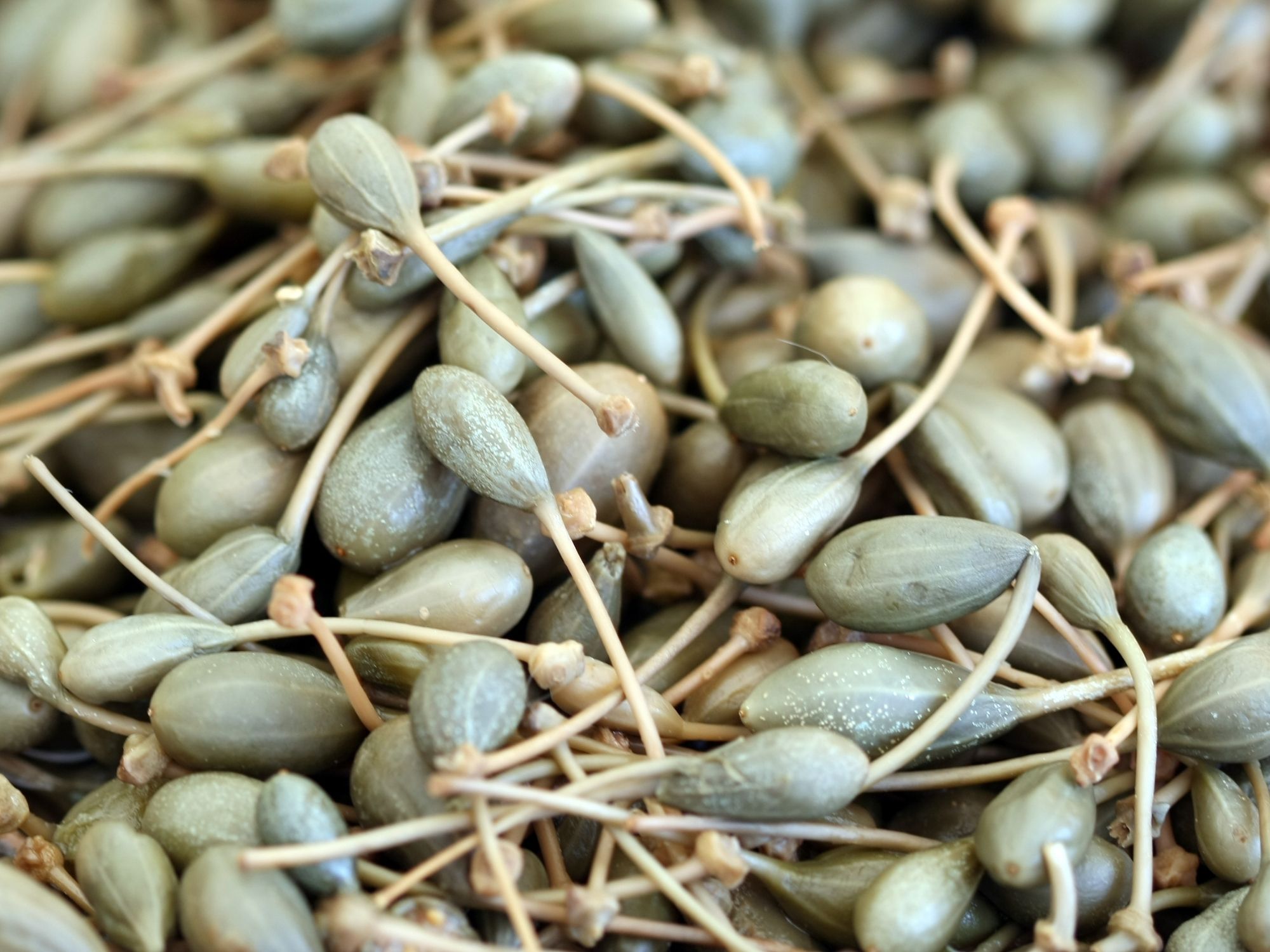
Capers
Capers belong to the caper family (bot.capparaceae) and are the pickled flower buds of the true caper shrub (capparis spinosa), while caper berries are the pickled fruit of the caper shrub. Capers are divided into various classes according to their size. The smaller the caper bud, the finer and aromatic the flavour and quality.
Our range includes various forms and processing methods:
-
Capers in salt brine and/or salt brine/vinegar brine:
-
Nonpareille (approx. 5-7 mm)
-
Surfines (approx. 7-8 mm)
-
Capucines (approx. 8- 9 mm)
-
Capotes (approx. 9-11 mm)
-
Fines (approx. 11-13 mm)
-
Hors calibre (approx. 13-15 mm)
-
Customised brine recipes possible
-
Caper Berries :
-
Calibre (15 - 22 mm)
-
Caper Paste:
-
Provided as fine and coarse pastes in various salt brines and vinegar brines according to individual recipes.
Our products are available in different packaging:
-
Drum
-
Bucket
-
Jar








